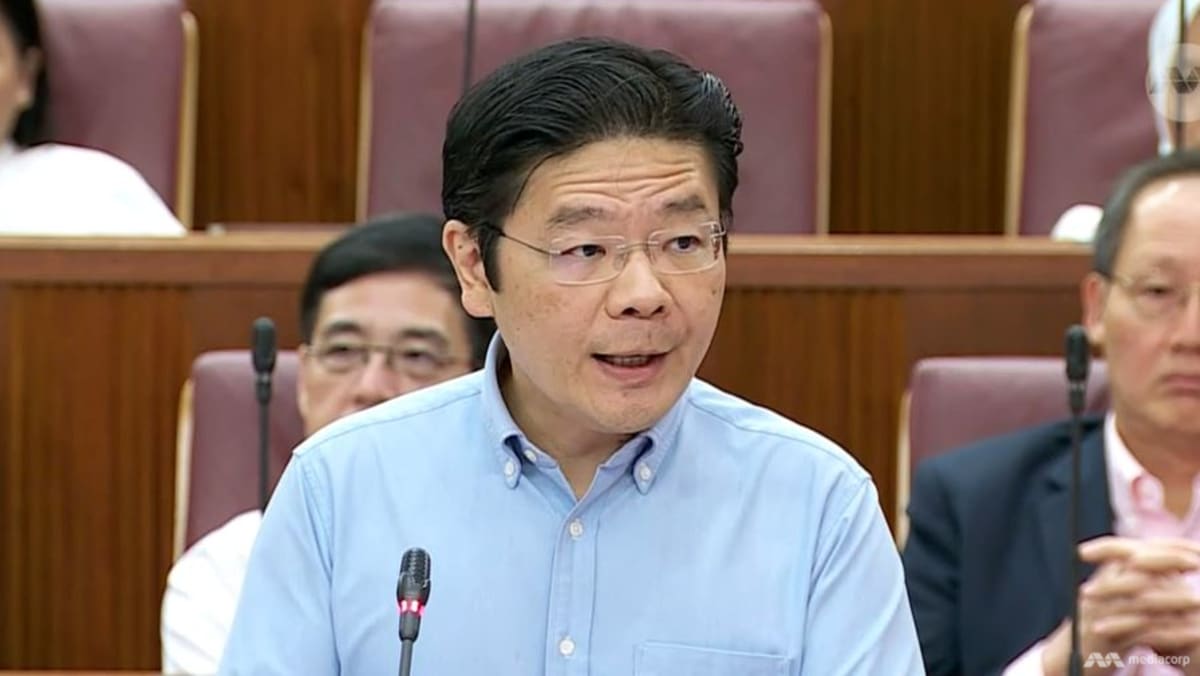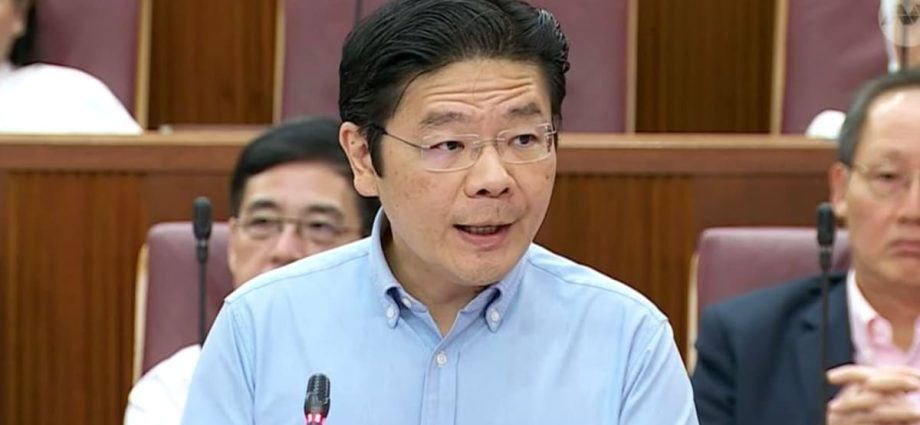
On education, Mr Wong said that he hopes all will be serious about refreshing their mindsets about schools and grades.
“It’s not possible to change something that has become so ingrained in our nature by government decree. We must be the change we want to see in our society,” he said.
He urged Singaporeans to give themselves and their children more breathing space to discover and develop their talents and to maximise their potential. To this end, Singapore has slayed some sacred cows including PSLE T-scores and replaced streaming with full subject-based banding, he said.
“We hope these moves will go some way to remove the stressors in our education system. But more importantly, we hope they will signal to all in society that we are serious about refreshing our system.”
Singapore’s refreshed meritocracy must also be a continuous one, with learning opportunities, milestones and ladders at multiple junctures, he said.
“Some other nations aspire to create a welfare society, from cradle to grave. We will aspire to create in Singapore a full-fledged learning society – from cradle to grave.”
A NEW DEFINITION OF SUCCESS
Mr Wong said that as a society, the definitions of success here tend to “converge around material definitions”, such as the size of one’s paycheck or property.
“How can we shift our lens, and collectively adopt and embrace wider definitions of success?” he asked. “We should strive to be a meritocracy where everyone can be the best possible version of themselves.”
Mr Wong said that mindset shifts are necessary but not enough, and the country’s economic structures, remuneration and career prospects in various professions must change, so that the wage gap across professions can be narrowed.
“More broadly, we also want to give Singaporeans who graduate from ITE and polytechnics stronger assurance: That their wages and career prospects will not be too far below their university-going peers, and will not be permanently conscribed to be below,” he said.
“They don’t have to succumb to a paper chase to secure a good salary and a viable career path.”
He appealed to all Singaporeans that for a new definition of success to become a reality, consumers must be willing to bear a higher cost for goods and services.
“We must recognise the important work that our fellow citizens undertake to keep our society going, and do our part to uplift and boost their wage prospects,” he said.
“All will gain when even the most vulnerable among us become better off. We will become a better people, a more just and more equal society.”
TARGETED RE-EMPLOYMENT SCHEME
Mr Wong said that in an uncertain world, Singapore needs to relook its approach to social support so that both the broad middle and the vulnerable can meet their needs in life and will not be left behind.
For the vulnerable, there has been a shift from social assistance to social empowerment, he said.
“We want not only to help people to tide through difficulty, but also to boost their sense of drive and purpose, and strengthen their sense of agency and ownership over their own circumstances.”
An example is the Fresh Start Housing Scheme, which helps lower-income families buy a home of their own. Mr Wong said that Singapore wants to expand this approach to more forms of social support — to provide additional financial help to families who help themselves, such as by staying employed and sending their children to preschool regularly.
“The more a family takes ownership of their goals, the more we will help you to reach even higher — a mutually reinforcing, virtuous circle,” he said.
For people with disabilities, Mr Wong promised to do more to alleviate the impediments they face, reduce the financial burden on parents of children attending special education schools and care centres and enable them to contribute to society.
“The onus is on all of us to find ways to affirm the dignity of our differently-abled fellow citizens and enable them to realise their full potential,” he said.
For all Singaporeans, he promised that the government will continue to deliver on the basic needs of housing, education and healthcare.
The government will consider doing more to support displaced workers, he said, through a targeted re-employment scheme that will reduce the strain on them to make ends meet, while still encouraging them to continue with training and job search.
“We intend to make this shift in our social strategy so every Singaporean can be confident: in this harsh, unpredictable world, we will have your back, and we will support you. We will cheer you on, so you can strive to achieve, do your best, and bounce back stronger,” said Mr Wong.
CARING FOR SENIORS, COLLECTIVE RESPONSIBILITY
With one in four Singaporeans above 65 by 2030, another urgent need is to care for the growing number of seniors in a sustainable way.
Healthier SG is one such scheme to shift from treating illnesses to promoting health, thus reducing the need for medical care and hospitalisation.
To help seniors age in place, Singapore will also invest in its infrastructure to build more community care apartments, expand the network of active ageing centres, improve access to home-based care services and work with community partners to prevent loneliness and social isolation, he said.
The government will also study how to enhance the Central Provident Fund (CPF) system to better meet retirement needs.
Mr Wong said that the new social compact should also be less about the individual and more about collective responsibility.
“A social compact is not just about what government will do for the people; it is also about what Singaporeans will do for one another … It is about all of us coming together, to forge a society of opportunities and assurance for all.”
One way to realise this is to nurture a broader culture of philanthropy and volunteerism, he said. Another way is to create more opportunities for Singaporeans to partner the government and one another in policymaking and co-creation.
“Becoming the best home is also very much about the intangibles – among them, embracing a more holistic way of life. Be it working out flexible work arrangements; treating ourselves and one another with greater kindness and compassion; knowing that good mental health is a key part of good health overall; or creating a conducive environment for Singaporeans to start and nurture families,” he said.
While the government has made some moves, such as increasing paternity leave, it will consider what more Singapore can do, said Mr Wong.
“Our refreshed social compact will be our compass for the road ahead. Forward Singapore is a bold agenda, and it depends on all of us to realise. Though we will not see change overnight, we can each start to embrace the new social compact today.”

